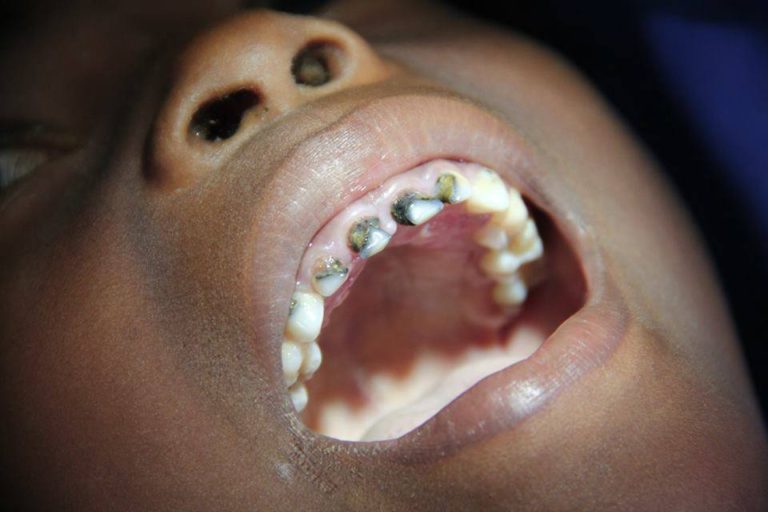Oral health issues remain one of the most widespread problems facing the world today. According to a 2013 study, The Global Burden of Oral Disease, “oral conditions affected 3.58 billion people worldwide.”[1] But these conditions affect more than just the mouth, which is why the Unspoken Smiles is dedicated to eradicating them in the developing world. Launched in 2014, the foundation is increasing access to dental care by: offering an oral health curriculum that instills proper hygiene in school’s children, performing basic services such as cleanings and fluoride treatments and training women ages 18-40 to become dental assistants in their area.
And we do this because we know that the burden of poor oral health can has far-reaching consequences. In short, this burden can be divided into three main groups:
The Disease Burden
In terms of oral health issues, the most visible is tooth decay, which represents “the most widespread chronic disease in the world and constitutes a major global heath challenge.”[2] This decay, when left untreated, can result in a variety of ailments, ranging from pain and infection to the formation of abscesses and septicemia. However, a lack of proper oral hygiene or basic dental care can lead to other severe, yet common, issues, such as periodontitis, which an estimated 5 to 20 percent of the world’s population suffers from, and oral cancer, which is among the 10 most common cancers in the world.[3]
The Economic Burden
And while it is easy to think of this exclusively as a health problem, it is important to note that they can have a significant impact upon an individual or household’s finances. Per the WHO, “oral diseases are the fourth most expensive diseases to treat” and the annual cost to treat them average more than $110 billion in the United States alone.[4] Not only are these maladies extremely expensive treat, but they represent a significant strain on the economy, as a Canadian study “found that 3.5 working hours/year/person were lost due to oral diseases, translating to productivity losses of over CND $1 billion/year for Canada alone.”[5]
The Social Burden
Similar to the economic, it is important to consider oral health issues in terms of the social burdens they cause, as there is a confluence of dietary, psychological and social issues that arise, all of which lead to a diminished quality of life. In terms of the dietary, as oral health conditions take hold, they disrupt an individual’s ability to bite, chew, swallow and produce saliva, which not only impacts the communal nature of the meal, but has an adverse effect on nutrition and food selection. Further, communication abilities are severely diminished as these conditions often impact a person’s ability to speak, leading to social isolation, sleep deprivation and depression.[6]
Taken together, these examples illustrate the significant impact that oral health has on mankind and is why prevention and access to regular care are the essential components to maintain it. So, it should be no surprise that preventative care and education form the basic tenets of Unspoken Smiles’ mission, because the aim of the foundation is not to provide charity, but to transform the way these communities perceive oral health and its relationship to their overall wellbeing. But it also why the curriculum is implemented at the early childhood and elementary level because, to instill this knowledge early on, is to make it part of a lifelong routine.
[1] Marcenes, W., N.J. Kassebaum, E. Bernabé, A. Flaxman, M. Naghavi, A. Lopez, and C.J.L. Murray. “Global burden of Oral conditions in 1990-2010: A systematic Analysis.” Research Reports (2013): n. pag. Web. 9 Apr. 2017.
[2] FDI World Dental Federation. “The Challenge of Oral Disease.” The Oral Health Atlas (2015): 29. Print.
[3] FDI World Dental Federation. “The Challenge of Oral Disease.” The Oral Health Atlas (2015): 13. Print.
[4] FDI World Dental Federation. “The Challenge of Oral Disease.” The Oral Health Atlas (2015): 56. Print.
[5] FDI World Dental Federation. “The Challenge of Oral Disease.” The Oral Health Atlas (2015): 56. Print.
[6] Bureau of Dental Health. The Impact of Oral Disease in New York State. Rep. N.p.: New York State Department of Health, 2006. Print.
